
Short Poetry Collection 054
LibriVox’s Short Poetry Collection 054: a collection of 20 public-domain poems. [chương_files]

LibriVox’s Short Poetry Collection 054: a collection of 20 public-domain poems. [chương_files]

LibriVox’s Short Poetry Collection 058: a collection of 20 public-domain poems. [chương_files]
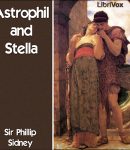
Astrophil and Stella is a sonnet sequence written by Philip Sidney, an Elizabethan poet and courtier. It details the frustrated love of Astrophil (whose name means “star-lover”) for his beloved Stella (whose name means “star”). It is likely that Sidney based his poems on his own unrequited passion for a married woman. The sequence inspired other sonnet writers of the period, such as Edmund Spenser, William Shakespeare, and Lady Mary Wroth. (Summary written by Elizabeth Klett) [chương_files]

LibriVox’s Short Poetry Collection 059: a collection of 20 public-domain poems. [chương_files]

The Moral Equivalent of War, the last public utterance of William James, is significant as expressing the opinions of a practical psychologist on a question of growing popular interest. For the past fifteen years the movement for promoting international peace has been enlisting the support of organizations and individuals the world over. That this is a question on which much may be said for the opposition, James, though a pacificist, admits with his usual fair-mindedness, pointing out that militarism is the sole nourisher of certain human virtues that the world cannot let die, and that until the peace party devises some substitute, some moral equivalent, for the disciplinary value of war, their utopian goal is neither desirable nor possible. His own solution is advanced not as a practical measure, but merely as an illustration to show that the world is full of opportunities for the peaceful development and continuation of the martial qualities of human life. This essay was written for general dissemination as a publication of the American Association for International Conciliation, February, 1910. As it not only presents a peace program but defines as well the most familiar arguments of the war party, no militarist article has been included, although it may be mentioned that a suggestive apology for war is to be found among De Quincey’s Essays and also in Ruskin’s Crown of Wild Olive. Additional documents on conciliation, approaching the question from innumerable points of view, are published by the Association mentioned above. [chương_files] […]
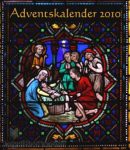
Diese Sammlung ist ein Adventskalender und enthält ein Türchen für jeden Tag vom 1. bis zum 24. Dezember. [chương_files]
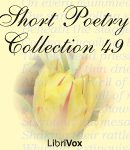
LibriVox’s Short Poetry Collection 049: a collection of 20 public-domain poems. [chương_files]
This is a collection of poems for the month of August 2008. [chương_files]
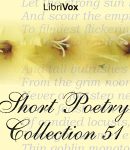
LibriVox’s Short Poetry Collection 051: a collection of 20 public-domain poems. [chương_files]
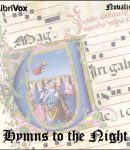
“Hymns to the Night” is the last published work of Georg Philipp Friedrich Freiherr von Hardenberg (1772-1801), the German philosopher and early Romantic poet whose pen name was simply “Novalis”. The work alternates poetry and prose, exploring a personal mythology of darkness and light, but it is also a free-associative chronicle of a young man rationalizing the untimely death of his fiancé. This version (1897) was translated by influential fantasy author and novelist George MacDonald, who cited it as a great – and early – inspiration. (Summary by Pete Williams) “Hymns to the Night” is also available to Librivox listeners in the original German. [chương_files]
Copyright © 2024 | FreeAudible